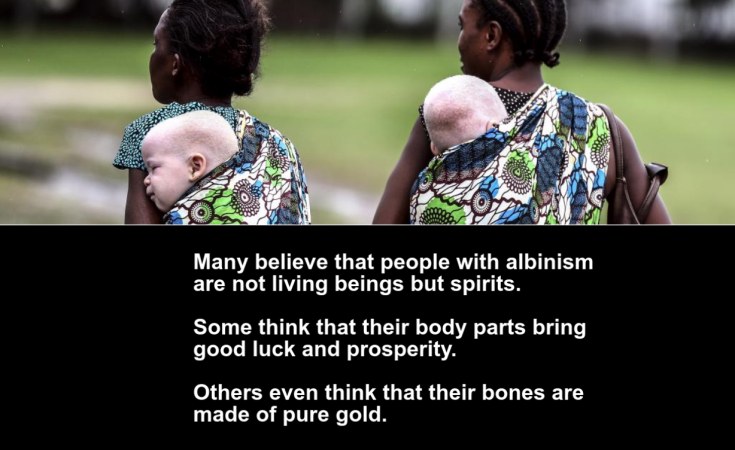Today marks the official launch of the report titled "Harassed, Misunderstood and Forgotten: Challenges faced by Persons with Albinism in Sierra Leone", the first of its kind in Sierra Leone. This report is the result of a two-month study commissioned by Lady Ellen Women's Aid Foundation (LEWAF) with support from the Open Society Initiative for West Africa (OSIWA). Centre for Alternative Policy Research and Innovation (CAPRI) conducted the research.
Persons with Albinism (PWA) in Sierra Leone face huge challenges in the realization of their rights. They have been largely excluded from progressive efforts undertaken by government, civil society, donors and development. Issues affecting them have generally gone unnoticed and has resulted to deep engraved stigma, exclusion, discrimination and sometimes violence against them. They have no voice compared to other marginalized groups such as persons with disabilities and women. Also, there is little activism on the part of civil society as well people living with the condition to advocate for the promotion and protection of their rights and wellbeing which may be a consequence of lack of knowledge and understanding and/or interest.
The report provides insight into the major concerns and challenges that people with albinism face including their access to justice, education, health, employment, etc., and their specific justice needs—their expressed human rights aspirations, concerns, access to justice and their challenges when interfacing with both informal and formal justice.
Of the many findings presented in this report, there are three (3) overarching conclusions:
- The culture of marginalization, discrimination, and stigmatization of PWA in Sierra Leone and the lack of effective policies to address their socioeconomic challenges by state and non-state actors, require the urgent attention of policy makers and community leaders;
- Although the present challenges of PWA in Sierra Leone cannot be equated to those of their counterparts in East and Southern Africa, the government and civil society organizations must act now to take the necessary steps to avert similar occurrences in the country;
- The lack of an effective and functional network PWA in Sierra Leone has not helped their cause, leaving them vulnerable to exploitation by unscrupulous persons and organizations.
About Lady Ellen's Women's Aid Foundation (LEWAF) and OSIWA
Lady Ellen Women's Aid Foundation - Sierra Leone (LEWAF-SL) is a not for profit making non-governmental organization founded in 2008 in memory-of and in continuation of the mission of a Norwegian philanthropist called Ellen Pauline Kise. Mrs Kise had continually shown deep empathy about the appalling conditions of women and children living in abject poverty and exposed to gender based violence, abuse, inequality, and sexual exploitations in homes and communities—especially those living in remote rural communities who had very limited or no access to essential support services like medical, counselling, legal support services and other essential safety nets opportunities. Ellen's ambition was to work studiously to minimize chronic vulnerabilities exposed to the rural poor especially women and girls.
OSIWA is a grant making and advocacy foundation, working to enable open societies and inclusive democratic governance that are based on transparent and accountable institutions and an active citizenry in West Africa.
For more information about LEWAF contact Osman Bobson Sesay and/or Mohamed B. Jalloh
Contact:
Osman Bobson Sesay
Mohamed KelfalaSesay
Project Activists
Nancy Sesay
Program Coordinator, OSIWA
Mohamed B. Jalloh
Executive Director - LEWAF


